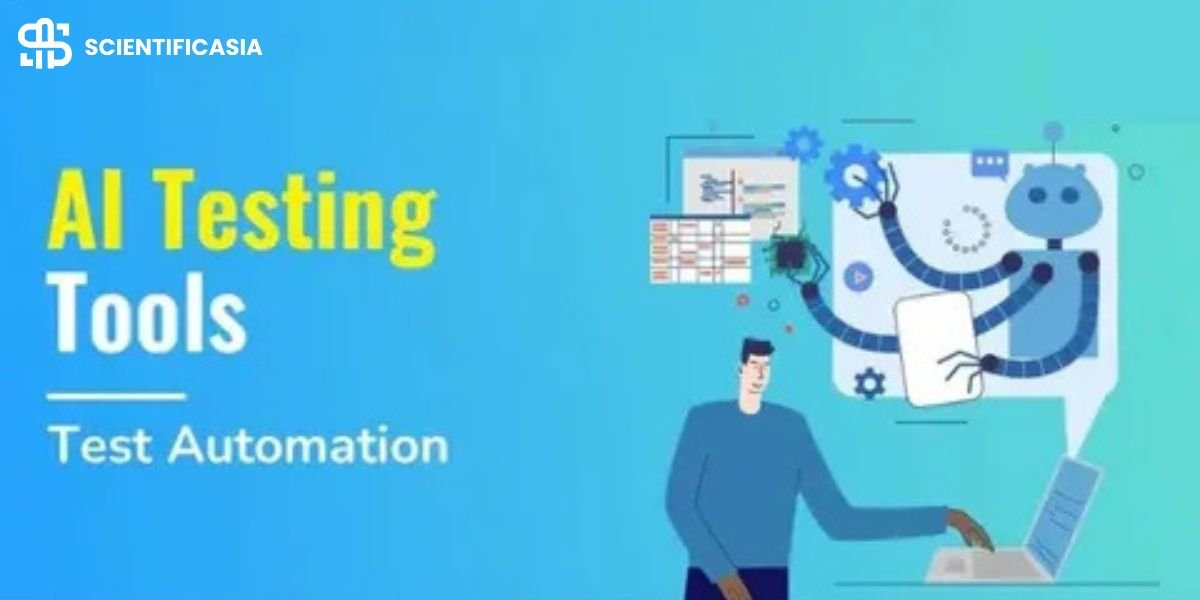There has never been a greater demand for faster software release and smoother deployments in this rapidly changing digital era. You’re always under the gun as a QA professional to provide efficiency, scalability, and reliability while sacrificing less speed. Artificial intelligence is transforming DevOps in this regard. By automating low-value tasks, anticipating possible mistakes, and enabling better decisions throughout the delivery pipeline, artificial intelligence (AI) is transforming DevOps and is no longer just a trendy term.
Why AI Matters in DevOps
Planning, coding, testing, deployment, and monitoring are the various stages of the traditional DevOps lifecycle. While most of these steps have already been prompted by automation, there are still certain issues with testing accuracy, resource allocation, and real-time monitoring. Human interventions tend to delay the cycle and expose it to human errors.
By bringing AI into DevOps, you get more than simple automation—you get smart automation. With insights provided by AI, you can prevent failures before they happen, optimise workload, and enhance test coverage without putting in much additional effort.
The Role of AI in Testing
The most important usage of AI in DevOps is testing. As software complexity increases, conventional testing methods fail to cope with increasingly rapid release cycles. AI testing tools are specifically intended to solve this problem.
These are the tools that can review historical test data, detect trends, and forecast high-risk hotspots in your codebase using machine learning algorithms. You can prioritise the most important test cases instead of running thousands of them blindly. This results in faster, more effective test runs and less noise.
Additionally, AI test automation enables you to generate and maintain dynamic test scripts. If your application is subject to rapid changes, traditional script maintenance becomes a bottleneck. AI-based solutions automatically adjust to UI, API, or workflow changes, minimising maintenance overhead for your teams.
Smarter Monitoring and Incident Management
Aside from testing, AI improves monitoring in manufacturing environments. DevOps teams typically deal with massive amounts of performance measurements and log data that are hard to manually analyse. AI systems can automatically sort through these points of data, detect anomalies, and alert you in advance before they turn into major problems.
For example, monitoring tools driven by AI can identify anomalous spikes in traffic, memory leaks, or sluggish reaction times. Instead of responding to outages after they have happened, you can address problems before they arise, saving end users’ downtime and regaining their trust in your product.
Speeding up Release Cycles
In DevOps, speed is a key differentiator in the competition. You can speed up release cycles with AI without increasing your risk. With AI test automation integrated in your CI/CD pipeline, you can get faster validation of new builds. Automated risk analyses, smart test case prioritisation, and predictive analytics all come together to speed up the feedback loop.
For you, as a QA engineer or manager, it equates to less time spent battling flaky tests and more time spent on strategic enhancements. Your team can, in turn, deploy features more frequently, knowing that quality has not been compromised.
Improving Collaboration in Teams
AI promotes improved teamwork in addition to automation and tools. Within a DevOps environment, teams from development, testing, and operations must work together. By providing actionable insights that can be shared among teams, AI testing tools dismantle organisational silos and create a shared understanding of risks and priorities.
For example, when an automated system finds a common problem in a specific code component, both developers and testers notice. This collaboration eliminates friction, reduces the time of resolution, and promotes a culture of ongoing improvement.
Overcoming Common Concerns
You may ask yourself whether Artificial Intelligence will supersede testers altogether. The reality is, AI isn’t a replacement for human talent. Rather, it makes you more effective. Strategic planning, exploratory testing, and insight into user experience still demand human judgment, though AI test automation can do repetitive, labour-intensive tasks faster and better.
Another is trust. It takes faith in its correctness to rely on AI-driven insights. To establish this trust, you may begin to introduce AI capabilities into your current workflows progressively, verifying results, and expanding as the system demonstrates its credibility.
The Future of AI in DevOps
The use of AI in DevOps is yet to mature, but the possibilities are assured. Potential advancements in the future could be predictive release planning, where AI proposes the best release times based on past performance and business value. Self-healing systems might also gain mainstream acceptance, automatically fixing known problems without the need for intervention.
That means future DevOps will be both quicker and more intelligent for you. By implementing AI now, you and your team will be ahead of the curve and ready to produce software of greater calibre on a larger scale.
Conclusion
AI is transforming DevOps into a smart ecosystem from a process-based discipline. You can make your test processes automatic, improve monitoring, and make deployments faster without compromising reliability using AI test automation and AI testing tools.
Embracing AI-driven procedures provides your DevOps team with the ability to manage increasing complexity. You can then devote yourself to creativity, collaboration, and value addition for your users rather than dedicating hours to repetitive work.
The transformation has already begun. Are you prepared to use AI to improve the speed and intelligence of your DevOps cycle?
















